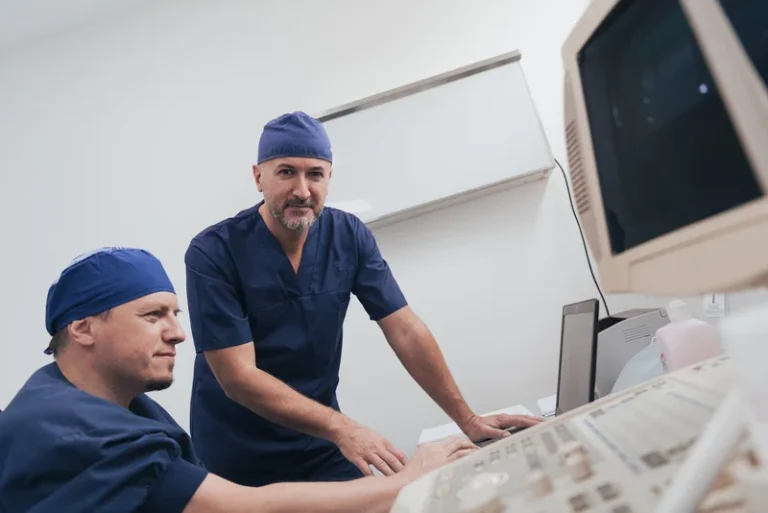Alcoholism Treatment Program: Facilities, Therapy, and Healing

Many mistakenly believe intensive detoxification is the final step in an alcoholism treatment program. However, cleansing the body of alcohol or drugs is only the beginning of healing from the disease. The patient will have a long course of consultations with a psychologist, rehabilitation, and restoration of health. Cognitive Behavioral Therapy, 12-Step Program, and numerous other methods for addiction treatment are one of the most influential non-drug ways to eliminate alcohol cravings and prevent future relapse. Many institutions in Boston are ready to help, among them — Eco Sober Houses — one of the most reliable and qualified sober houses.
Types of Alcohol Treatment Facilities in Allston
Anyone in need can get assistance in Boston. You might locate several facilities that provide addiction therapy in any part of the city. For instance, Allston is one of the neighborhoods with many sober homes. There are various local drug therapy facilities in Allston from which people who struggle with drug and alcohol addiction might select. Numerous options are available among facilities that offer alcoholism treatment programs in Allston:
- Detox facility.
- Outpatient Drug facility.
- Short Term alcohol rehab.
- Long Term Drug facility.
- Inpatient Drug Rehab.
Specialists from various institutions are developing methods to eliminate the causes and consequences of the onset of the disease and help a person start living without alcohol. The results obtained thanks to well-coordinated teamwork and the use of modern methods of detoxification and rehabilitation are surprising.

Take back control of your life and start on the road to recovery now.
Alcohol Addiction Programs in Back Bay
Addiction must be thoroughly treated to live a healthy life in Back Bay. Working with consciousness alone is insufficient. The drug-poisoned body has to be cleaned. Medical attention from the Addiction Rehabilitation Center is required for this. Additionally, it needs the assistance of seasoned professionals and just a few close friends and family members because it’s crucial to dispel preconceived notions about the patient that may have been harmful. Health-improving physical education, wholesome nutrition, and interaction with those who have also started down the path of correction should all help to improve the mood overall.
To obtain the best care possible in a sober house in Back Bay, patients can select from a range of alcoholism treatment options:
- Exercise therapy.
- Contingency management/motivational stimulation.
- Behavior modification.
- Anger management.
- 12-step facilitation.
The alcoholism treatment program includes both treatment with medications and constant psychological support: counseling and group meetings. Only a systematic, integrated approach may lead to stable remission. A person might only reach recovery when they can remain clean for many years.
Alcohol Rehab Centers in Bay Village
Various phases on the road to recovery are often incorporated in Alcohol Treatment in Bay Village. Frequently, the initial stage in this procedure is detox. After the drugs have been removed from the body, people may start working on their recovery. The following step might involve inpatient or outpatient therapy and several programs. Popular Bay Village rehab centers that offer various programs include:
- Rehabilitation Institute.
- Boston ASAP Counseling.
- Massachusetts Organization for Addiction Recovery.
Extensive and comprehensive treatment is frequently provided throughout abuse recovery in individual and group settings of a sober house. People can recognize and change their drug-using and drug-seeking habits with various alcoholism treatment programs. They will learn relapse prevention techniques, better coping mechanisms, and ways to avoid substance use triggers.
Eco Sober Houses is one of the most popular establishments in Boston
Eco Sober Houses is a facility that helps people with addiction achieve sobriety. Sober house’s goal is to support people’s long-term healing. This idea drives the facility because it recognizes a comprehensive strategy that addresses residents’ physical, emotional, and spiritual needs are the most successful.
The general health of each resident is necessary for successful rehabilitation. Therefore, regardless of ethnicity, origin, religious outlook, gender, or sexual identity, every patient might rely on receiving comfort, support, understanding, and respect.

Treatment programs
Eco Sober Houses are designed to provide participants with the tools they need to succeed once they leave the program. The facility offers the most thorough 12-step alcoholism treatment program, qualified career advice, and stable employment.
Behavioral Therapy
People who get behavioral treatment might alter their alcohol problems and problem behaviors. These therapies are supported by research and are administered by mental health specialists through consultations with rehabilitation programs. Common approaches:
- Cognitive behavioral therapy. It helps people recognize and change problematic behaviors connected with alcohol consumption and those contributing to drug misuse.
- Motivate people. Motivational interviewing strategies are used in the alcoholism treatment program to assist patients in overcoming treatment resistance or ambivalence and quitting drug usage. After a comprehensive assessment, the therapist often works with the person in private sessions.
- Management in unexpected situations. This strategy is centered on offering rewards for altering alcohol-related behavior.
Therapy should include a full range of measures to eliminate alcohol problems. The best results are shown by being in a sober home. In this case, Eco Sober Houses staff applies all possible actions that collectively lead to effective development.
12-step facilitation
The 12-step program is a bundle of ideas from organizations like Alcoholics Anonymous (AA) and Narcotics Anonymous (AN). It is often incorporated into treatment programs through 12-step facilitation. This program emphasizes giving control to a higher power. They are designed to assist people in realizing life has become unmanageable due to addiction. The 12-step facilitation is also intended to help people in treatment get accustomed to going to meetings and utilizing the special alcoholism treatment program to support them in maintaining their recovery beyond official treatment.
Mutual Assistance Groups
Eco Sober Houses believes therapy is an essential strategy for treating alcohol use disorders. Peer support groups might give an extra layer of support and improve the efficacy of work when they are a part of a comprehensive alcoholism treatment program. You will always feel supported at a sober house since everyone there is looking for a way to cure themselves.
Self-help groups are a beneficial addition to treatment or a valuable form of aftercare to support a person after formal treatment has ended. They provide the recovering individual with assistance and a network of sober peers they may rely on as they all support one another along the way to recovery.
Alternative Medicine
Yoga has been shown to support the management of cravings for drugs like alcohol during the alcoholism treatment program. Treatment plans might incorporate artistic pursuits like music therapy and art therapy. One recent study on music therapy discovered it improved treatment readiness and motivation in patients with drug use disorders. Art therapy can help people connect with suppressed emotions in a less harmful way than talking therapy.

This can be a difficult journey, but you don’t have to go it alone. Let us be your guide and provide you the environment needed to regain control of your life and begin the path to recovery.
Reliable help from professionals
Eco Sober Houses can assist if you or a loved one is battling with alcoholism and would want to learn more about recovery support programs. We work to ensure everyone who needs treatment can get it here, where you may find the most supporting environment. An alcoholism recovery support program in a Boston sober home enables patients to pursue recovery in a friendly, secure environment. You can work on your recovery in the settings that best suit your requirements. To learn more about us, call the hotline right away. Experts will give you advice and are always willing to assist.




